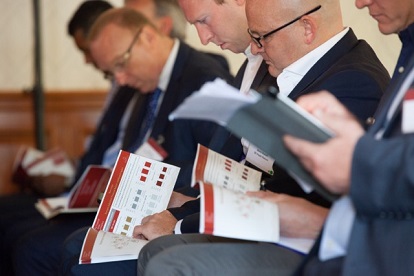2 in 3 people agree that they have a responsibility to make the world better, want their investments to make a difference, and think financial institutions should avoid investing in companies that harm people or the planet.
HEADLINES
- 2 in 3 people agree that they have a responsibility to make the world better, want their investments to make a difference, and think financial institutions should avoid investing in companies that harm people or the planet.
- There is now more than $30 trillion of assets in responsible and sustainable investments globally and it’s expected that this will grow and move into the mainstream.
- The EU Action Plan on Sustainable Finance comes into force at the end of 2020 and it requires advisers to assess, and document, the sustainability preferences of their clients. The proposed Disclosure Regulation defines sustainability risk as: "...an environmental, social or governance (ESG) event or condition that, if it occurs, could cause an actual or a potential material negative impact on the value of the investment arising from an adverse sustainability impact."
- The EU proposes introducing a definition of ESG preferences. ‘ESG preferences’ mean a client’s or a potential client’s choice as to whether and which environmentally sustainable investments, social investments or good governance investments should be integrated into his or her investment strategy.
- It proposes firms should be able to demonstrate that they have in place adequate policies and procedures to ensure that they understand and are able to invest and assess a client’s outputs and outcomes.
- EU goals of change in legislation: “To enable investment firms that provide investment advice and portfolio management to recommend suitable products to their clients. Those investment firms should introduce their suitability assessment questions that help identify the client’s individual ESG preferences. In accordance with their obligation to act in the best interests of the client, recommendations to the clients should reflect both the financial objectives and where relevant, the ESG preferences expressed by those clients”.
KEY CHALLENGES
- The current MiFID only requires advisers to ask clients for their financial intentions and risks, and asks nothing about clients’ non-financial objectives.
- Advisers lack clear understanding of the jargon behind ESG, social investment, impact investment, venture philanthropy, philanthropy and how they could supply suitable services or signpost their clients in response to the increasing number of questions they are being asked about what clients could do with their funds and if they want to invest in sustainability-led funds.
- Investors’ children are starting to ask their parents where their investments are going and challenging them with questions as they are keen to know the impact their parents’ money is having on others.
- Supply chain knowledge – it’s hard to understand all the facets within it and what difference one change here is making to the end product – where should advisers go to source that information?
- To what extent should an IFA influence where their clients invest and how much should their own morals affect the advice they give to their clients?
CONCLUSIONS/SOLUTIONS
- Part of the EU’s efforts is to align European policy framework and investing with the UN’s Sustainable Development Goals (SDGs). SDGs have become a valuable tool for advisers to use as they provide a platform which advisers can use to engage with their clients and provide examples of where their investments are going, and their 169 targets can become aligned with KPIs.
- Advisers need to learn how to start and manage the conversation with their clients about their interest in ESG and socially-minded investments, and understand their clients’ different levels of expectation and acceptance, without putting them on the spot.
- Would clients prefer to Avoid hard and mitigate ESG risks, Benefit all stakeholders or Contribute to solutions?
Expert: Simon Holmes – BMO Global
Facilitator: Juliet Valdinger – Independent Consultant


